Are a Smoke Alarm and a Smoke Detector The Same Thing?
No, a smoke detector is one or more devices that detect the presence of smoke and report that information back to an alarm system. A smoke detector may sound, however the alarm system will always sound for a fire alarm. A smoke alarm is a stand-alone device that is not tied into a system.
A smoke detector may have a heat detector also built into it, and it may have its own sounder. It can be wired or wireless, but in every case, it will communicate information from where it is mounted back to a central alarm system which will then sound and notify the authorities when enabled. In some cases, smoke detectors may be interconnected so that if one signals an alarm condition, they all sound.
Some types of smoke detectors have a finite lifespan. For example, ionization smoke detectors must be replaced after a certain period of time because the small amount of radioactive material inside them will decay over time until the detector is no longer able to properly sense the presence of smoke. Today's smoke detectors are usually of the photoelectric variety. With photoelectric smoke detectors, as long as they are tested regularly and properly, and maintained (cleaned) when necessary, they can last for an indefinite period.
A smoke alarm is a different animal altogether. The building code in most places requires that high-voltage, interconnected smoke detectors be installed during the construction of any new dwelling. Smoke alarms will always have a built-in sounder since they are not connected to a separate alarm system that provides a fire alarm sound. Interconnected means that if one of these smoke alarms goes off, they will all sound. You can often tell you have this type of smoke alarm because if you pull one off its base, it will have wires, but also a backup battery. Smoke alarms can also be wireless, and these may also be interconnected. Both First Alert and Kidde are known to make this type of smoke alarm.
Smoke detectors are considered life-safety equipment. Any type of smoke alarm or smoke detector should be tested regularly and any recommended maintenance performed promptly. But because an alarm technician isn't routinely testing smoke alarms, the NFPA (National Fire Protection Association) recommends that they be replaced after ten (10) years of use. System Sensor, a well-known producer of smoke detectors discusses this in their field bulletin, which you can read here. Alarm Grid customers who install and maintain their own alarm system should be testing their system, including any smoke detectors, on a monthly basis.
Did you find this answer useful?
We offer alarm monitoring as low as $10 / month
Click Here to Learn MoreRelated Products
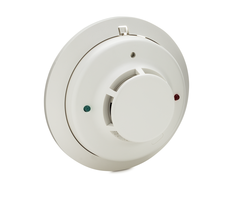
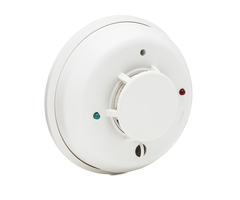

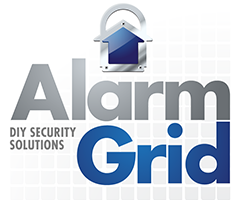

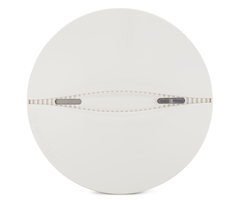
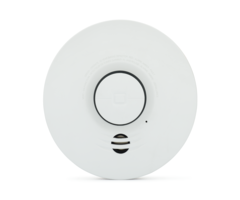




Related Categories
- High Voltage Wired Smoke Detectors
- Smoke Detectors
- Wired Smoke Detectors
- Smoke Detectors
- Wired Smoke Detectors
- 2-Wire Smoke Detectors
- Wireless Smoke Detectors
- One-Go/All-Go Wireless Smoke Detectors
- Wireless Smoke Detectors
- PowerG Smoke Detectors
- 4-Wire Smoke Detectors
- Honeywell 5800 Smoke Detectors
- One-Go/All-Go Wired Smoke Detectors
- Honeywell SiX Smoke Detectors
- Answered
- Answered By
- Julia Ross



